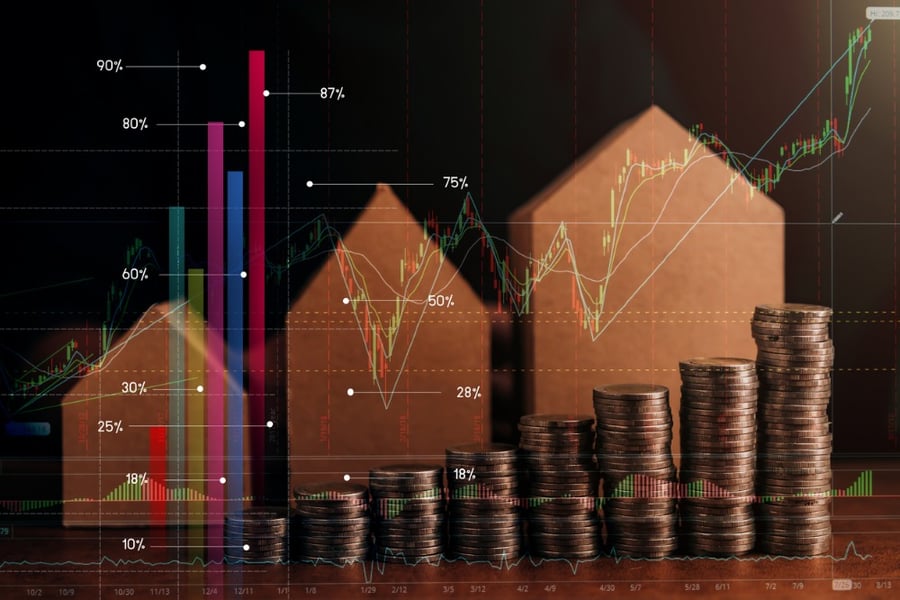Lower rates and default risk for refinances result in less risky purchase loans

The coronavirus recession continued to put a strain on mortgage performance in the first quarter, however effects of the pandemic may not be as harsh to the housing market as during the global financial crisis, according to the latest Milliman analysis.
Results of the Milliman Mortgage Default Index (MMDI) showed that Fannie Mae and Freddie Mac saw a 40% quarterly increase in economic risk due to COVID-related economic pressures. Economic risk for Ginnie Mae mortgages, which have a higher level of borrower risk relative to Fannie and Freddie, soared by 33% in Q1 2020.
Economic risk, as measured by historical and forecast home prices, is only one of the several factors that drive the default risk of government-back mortgages. Other factors include the risk of a borrower taking on too much debt and underwriting risk (such as loan term, loan purpose, and other influential mortgage features).
Despite the increased economic risk in the first quarter, the report forecasted that losses would not rise to world financial crisis level.
"While we anticipate that the large number of unemployment claims will translate to an increase in mortgage delinquency rates, default rates (i.e. the number of borrowers that lose their homes) will likely not be as severe as during the global financial crisis thanks to the robust home price growth we saw over the past several years," said Jonathan Glowacki, co-author of the MMDI.
The MMDI for GSE loans fell four basis points from 2.06% in Q4 2019 to an estimated average default rate of 2.02% in Q1 2020. Purchase loans were also less risky in Q1, as record-low interest rates and lower risk refinance loans also offset an increase in MMDI for purchase loans.
Meanwhile, quarterly default risk for Ginnie Mae acquisitions edged up from 10.29% to 10.48
%. Since 2014, Ginnie Mae has been experiencing a credit score drift relative to GSE and increased economic risk from the pandemic.



